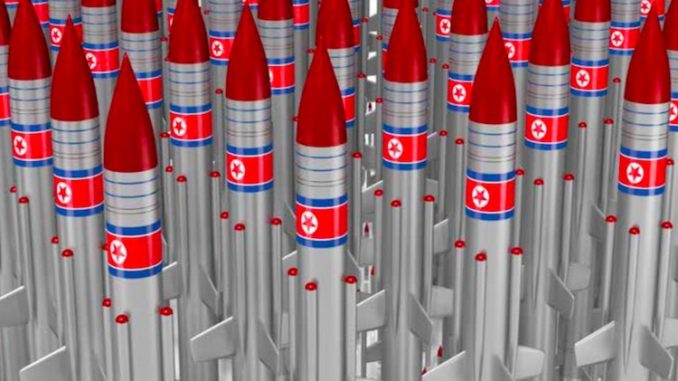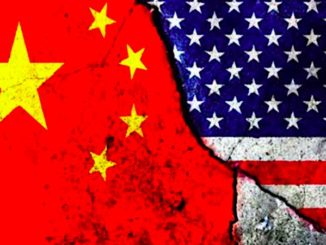
Dr Reuben Steff, lecturer in International Relations and Global Security at the University of Waikato, writes that thawing relations between the US and North Korea may be dangerous for regional stability if Beijing isn’t seated at the table.
After a year of rising tensions that saw North Korea accelerate its ballistic missile and nuclear weapons program, the diplomatic equation may have fundamentally changed in recent months. The first shock came in March, when US President Donald J. Trump agreed to meet with North Korea’s leader, Kim Jong-Un.
This meeting, scheduled to take place in Singapore on June 12, will be the first ever face-to-face between a sitting leader of North Korea and the United States. Since Trump agreed to meet Kim, there has been a flurry of diplomatic activity. The leaders of North and South Korea met for an inter-Korean summit in April; Kim Jong-Un made two trips to Beijing; and Japan and Russia are scrambling to try secure their own summits.
No major state in the region wants its interests ignored during what might prove to be an immense geopolitical transformation on the peninsula.
So what has changed? Well, quite a lot. For a start there is the Trump factor. Trump is a ‘tactical opportunist’. He has an acute sense of the moment, making short-term decisions that he feels will politically benefit him.
Furthermore, Trump is not a traditional politician wedded to the normal diplomatic procedures that would almost certainly have prevented a more traditional US president from agreeing to meet Kim. Trump’s penchant to personalise US foreign relations may also, in the case of North Korea, be the perfect catalyst for generating a diplomatic breakthrough when they meet in June (admittedly, it also comes with a risk that the meeting’s failure could have grave consequences).
Meanwhile, in Pyongyang, the new generation of leaders are not weighed down with the history of having fought to secure North Korea’s independence in the 1950s. Nor were they alive for much of the Cold War and schooled and indoctrinated in the Communist world.
The new generation – often educated in Western Europe – may be more willing to open up North Korea and, by being divorced from the creation of North Korea and educated in the Western technocratic-style, will have greater claim to leadership positions in a future unified Korea.
Furthermore, the perceived benefits of unification may be growing. This owes itself to regional power dynamics, where the rise of China and the regional balancing it is inducing will place pressure on the Koreas, who will be stronger together rather than apart.
Enjoying this article? Consider a subscription to the print edition of Line of Defence.
One other change, and not a positive one, it that the growing optimism over the Korean peninsula comes at the same time US-Chinese relations are deteriorating.
While Trump’s first year in power was characterised by a charm offensive vis-à-vis China, the gloves have now come off. The recent US National Security Strategy and National Defence Strategy labelled China a revisionist power that“seeks to displace the United States in the Indo-Pacific region”.
The increasing US military budget, warming ties between the US and Taiwan (a state Beijing considers a ‘renegade province’), trade tariffs levelled against China and, indeed, the recent diplomatic initiatives involving North Korea should be viewed in this context.
The US may very well be looking for areas around China’s periphery where it can place pressure on Beijing. Forging the North Korean crisis into a trilateral Seoul-Pyongyang-Washington diplomatic format that excludes Beijing would do precisely this.
So what does this mean for New Zealand? Clearly, a diplomatic breakthrough that leads to a denuclearised Korea would conform with Wellington’s longstanding, and recently re-energised, dedication to nuclear non-proliferation. A fully nuclearised, yet still isolated, North Korea will ensure conflict remains a possibility and regional tensions high. Yet, there are also wider regional implications to any resolution.
As such, the best outcome would be an agreement that includes all regional players, and not one where Seoul and Washington resolve the crisis without Beijing sitting at the table. This could simply lead to the solution to one long-standing crisis but the emergence of another, as the US-China strategic competition moves to centre stage with Beijing chaffing at being humiliated and potentially strategically disadvantaged by being excluded from a diplomatic resolution on its doorstep.
This is the hidden danger of success. As such, to the extent New Zealand has a voice and can encourage the primary actors to take positions that have the best chance of ensuring stability throughout the Asia-Pacific region, it should be to encourage negotiations that will include all the major states in Northeast Asia.









